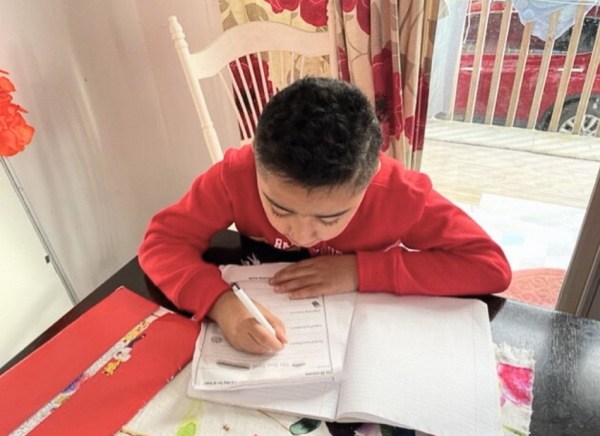You can now add Healthify as a preferred source on Google. Click here to see us when you search Google.
Learning difficulties
Key points about learning difficulties
- If a child has a learning difficulty, it will either be a general (global) learning difficulty or a specific learning difficulty.
- A general learning difficulty means the child takes longer to understand and process information than other children.
- A specific learning difficulty means a child of average or above average intelligence has difficulty with particular aspects of learning.
- Signs that your child may have a learning difficulty depend on their specific issue and the age when it starts showing.

If a child has a learning difficulty, it will either be a general (or global) learning difficulty or a specific learning difficulty.
A general learning difficulty means they take longer to understand and process information than other children. They find learning anything more difficult, no matter how it's taught. It may be an intellectual disability, but that can be hard to identify in young tamariki.
A specific learning difficulty means a child of average or above average intelligence has difficulty with particular aspects of learning. Specific learning difficulties aren't caused by an intellectual disability, but by other factors.
Dyslexia (difficulties with language), dyscalculia (difficulties with maths) and dysgraphia (difficulties with handwriting) are all examples of specific learning difficulties. Children can often have more than 1 at the same time. Children with a specific learning difficulty usually learn very successfully if the teaching style meets their needs.
Children with general learning difficulties often also have other developmental delays. Children with specific learning difficulties can have other difficulties, eg, dyspraxia, ADHD, autism spectrum disorder or sensory processing disorder.
Signs that your child may have a learning difficulty depend on their specific issue and the age when it starts showing.
Preschoolers
If your child's learning difficulty shows up before they go to school, you may notice that they develop as expected in some areas but fall behind in others. It may take longer than usual for them to reach some milestones, eg, crawling or walking and speaking. Other members of your whānau may also have learning difficulties.
Primary school children
Your child may have difficulty with some skills that they try to learn at school, eg, reading, spelling, writing and maths. They may also have difficulty paying attention and remembering things or have difficulties with coordination.
They may find it difficult to get on with others socially or to follow instructions. They may clown about or daydream at school.
Children with learning difficulties can have low self-esteem and often complain about going to school. They may have frequent after-school meltdowns because they feel overloaded.

Image credit: Healthify He Puna Waiora
Intermediate and high school children
At this age, a child may have difficulty with some teaching styles. For example, they may find listening and reading hard but learn better when they're doing things. They may also find it hard to manage emotions, be organised (time management), take notes and write essays. A child with a learning difficulty may also have low self-esteem.
If you think your child may have a learning difficulty, the first step is to discuss it with your healthcare provider, Well Child nurse or early childhood teacher. They'll ask you questions about your child's history (if they don't know your child well) and what you're worried about. An early childhood teacher who looks after your child may already have a good grasp of their learning style and needs. You can find a lot of information about what to do and expect from the Ministry of Education(external link).
A psychologist may do a learning difficulty assessment. They'll ask questions about what your child does well and what they find hard. They'll also do some tests to find out how your child's brain processes information. This will help them identify whether your child has a general or specific learning difficulty and how they're best able to learn. Tests for specific learning difficulties can be very detailed.
Gathering all the information you can about your child's precise difficulties, and what their strengths are will help you advocate for their needs.
When your child goes to school, it can help to have one of the health professionals working with them go with you to explain what difficulties they have. This may make it more likely that they get the support they need at school.
There are community child development support services that can help. Your healthcare provider or your child's school may also know what services are available for you and your child.
Apps reviewed by Healthify
You may find it useful to look at some Autism apps.
Learning difficulties affect individuals differently, and some people go through life without ever being diagnosed. Most children with learning difficulties will have full, happy lives, especially if they've had good support as a child. People with learning difficulties tend to choose jobs and hobbies that suit their strengths, minimising the difficulties they face.
Specific learning difficulties are unique, as the person usually has average or above average intelligence but has difficulty expressing it. This can contribute to poor mental health, eg, increased levels of anxiety and low self-esteem. So, it's important to advocate strongly for them, to make sure their needs are understood and met.
Dyslexia Foundation of New Zealand(external link) Information and support for children, parents and adults with learning difficulties. They also have list of private providers(external link) of support with learning difficulties.
Credits: Content shared between HealthInfo Canterbury, KidsHealth and Healthify He Puna Waiora as part of a National Health Content Hub Collaborative.
Last reviewed:





